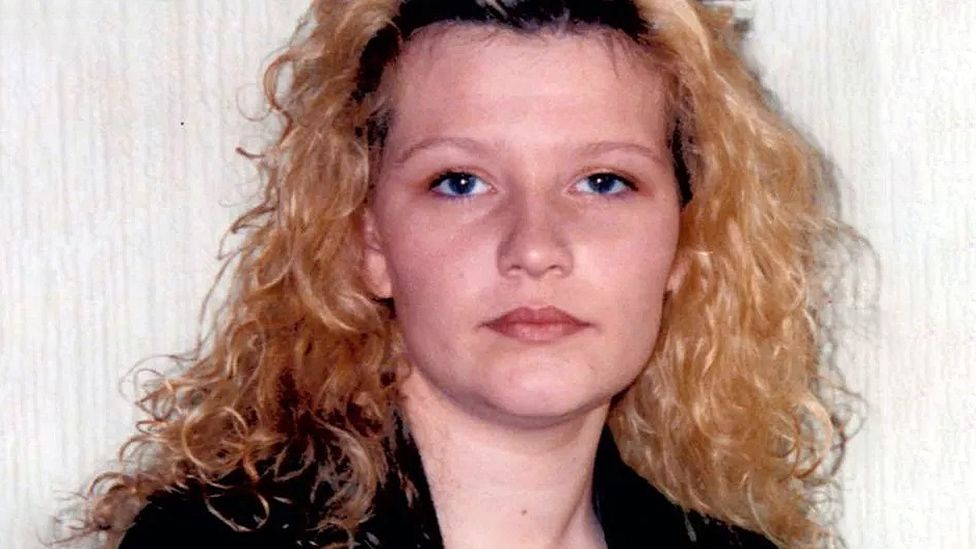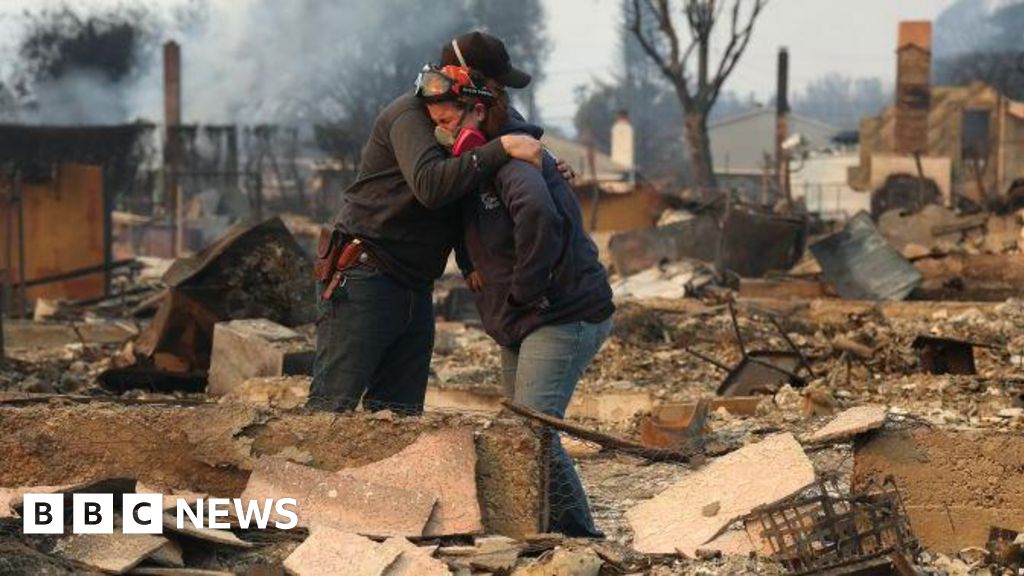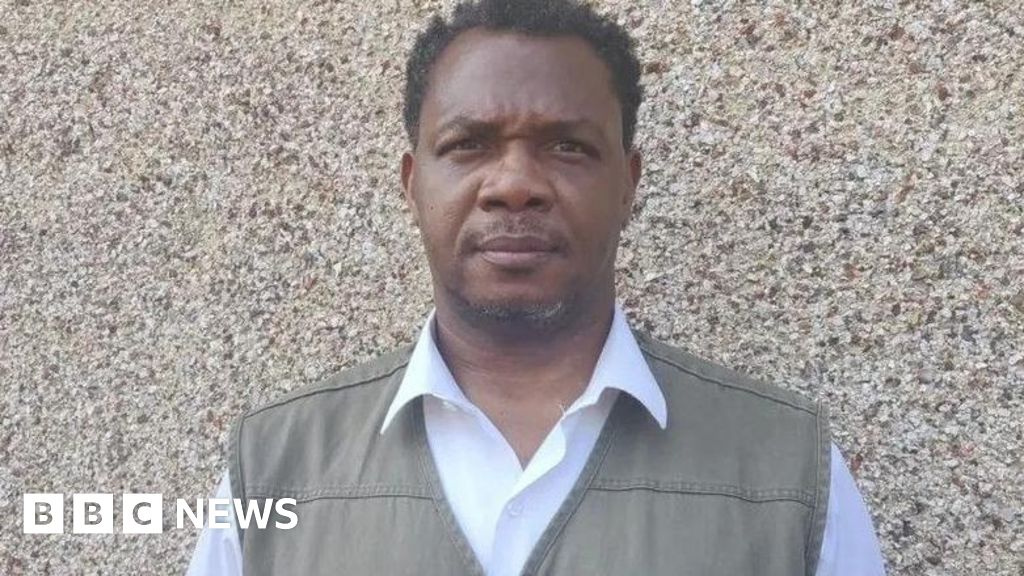
Emma Caldwell murder was one of Scotland's best known unsolved cases
By Katy Scott & David Cowan
BBC Scotland News
An independent public inquiry into the police handling of the Emma Caldwell murder investigation has been confirmed by the Scottish government.
Last week Iain Packer, 51, was jailed for life after being found guilty of strangling the 27-year-old in 2005.
Packer was interviewed a month after her body was found but it took 19 years to bring him to justice.
Emma's family said they now hoped to create a legacy for her and other victims of sexual violence.
Emma Caldwell had become a sex worker to fund her heroin addiction when Packer drove her to remote woods, 40 miles from Glasgow, and killed her.
Last week he was found guilty of her murder and offences against a total of 22 women including 11 rapes was sentenced to serve at least 36 years in prison - the second longest sentence ever handed down by a Scottish court.
During the first investigation into Emma's murder, former detectives have revealed they were prevented from detaining Packer by senior officers who refused to treat him as a suspect, focusing instead on a group of four other men who were later cleared.
Justice Secretary Angela Constance confirmed that a judge-led inquiry would take place in a statement to the Scottish Parliament.
Ms Constance said she recognised that a statutory public inquiry was a "very significant undertaking".
She added: "Nonetheless given the gravity of this case, the length of time that it took for justice to be served, the horrific extent of the sexual violence suffered by the victims and survivors and the suffering endured by their families, the case for holding a public inquiry is clear and compelling.
"It is time to apply fresh scrutiny to this case, to understand what went wrong to ensure that lessons are learned for the future and to provide answers to all victims and survivors in this case."
The announcement comes after both First Minister Humza Yousaf and the justice secretary met Emma's mother, Margaret Caldwell, earlier this week.
Image source, Scottish Parliament TV
Image caption,Aamer Anwar accompanied Margaret Caldwell and her family to the Scottish Parliament for the announcement
Asked for her reaction to the inquiry announcement, Mrs Caldwell said: "It's not finished yet, I'm still going on."
In a statement read by the family's lawyer Aamer Anwar, she said: "For a mother, today is a chance for a legacy for Emma Caldwell and for the victims of sexual violence.
"Emma's family hope her name will live on long after her killer's name has turned to dust."
Mr Anwar described the handling of the murder investigation as "the worst scandal to ever hit the Scottish legal system", and said he hoped a judge from outside Scotland would lead the inquiry.
He added: "Strathclyde Police and Police Scotland brought shame on their uniform, they betrayed their duty to protect life, they sabotaged the case against Iain Packer, and they have blood on their hands. The individuals who are responsible must now face justice."
Ms Constance confirmed she would update parliament when the chairperson has been chosen, and said it was important to choose someone who has the confidence of Emma's family.
The Lord Advocate has also confirmed that an external police force will be brought in to investigate the conduct of officers involved in the original inquiry.
Analysis - What will we learn from the inquiry?
By their very nature, public inquiries are time consuming, enormously expensive and tie up resources in a legal system that's still trying to cope with the backlog from the pandemic, writes BBC Scotland home affairs correspondent Dave Cowan.
Four are already under way in Scotland at a cost so far of £122m. Today's announcement means two more are in the pipeline.
The Scottish government will have considered what an inquiry into the Emma Caldwell case might achieve. What would it tell us, that we don't already know.
On the face of it, this case involved some of the most serious failures in the history of Scottish policing.
We don't know why Strathclyde's senior detectives refused to treat Iain Packer as a suspect.
The trial judge, Lord Beckett, said Packer preyed on the vulnerable and caused "extreme and enduring suffering for so many women and their families"
We don't know why they chose to disregard evidence that he was a sexually violent user of sex workers, who had attacked Emma the year before she died and admitted taking her and other prostitutes to the remote woods where her body was found.
We don't know what, if anything, was done about the evidence linking him to Emma's murder after the case against four other men collapsed.
We don't know, what if anything, was done about the allegations that he had sexually assaulted other women.
Police Scotland has apologised for the failings of Strathclyde Police and said it has learned lessons from its own actions, particularly over its pursuit of journalists who brought this scandal to light in 2015.
Scotland's prosecution service, the Crown Office, says an investigation into the actions of senior detectives found "insufficient evidence of criminality" for action to be taken but another investigation involving a force from outside Scotland is to look at that again.
Over 19 years, the Emma Caldwell police inquiry examined more pieces of information than the inquiry into the Lockerbie bombing, the worst terror attack in UK history.
There have been major changes to the investigation of homicides since she was murdered in 2005.
Her family endured nearly 19 years of tortuous uncertainty until Packer was convicted, and in the intervening years he attacked at least 15 other women. Some of them were raped.
They deserve answers to these questions and the Scottish government has decided the best way to get them is a public inquiry, no matter the cost or how long it takes.
You can listen to the podcast series Who Killed Emma? on BBC Sounds.
 (1).png)
 10 months ago
19
10 months ago
19


















